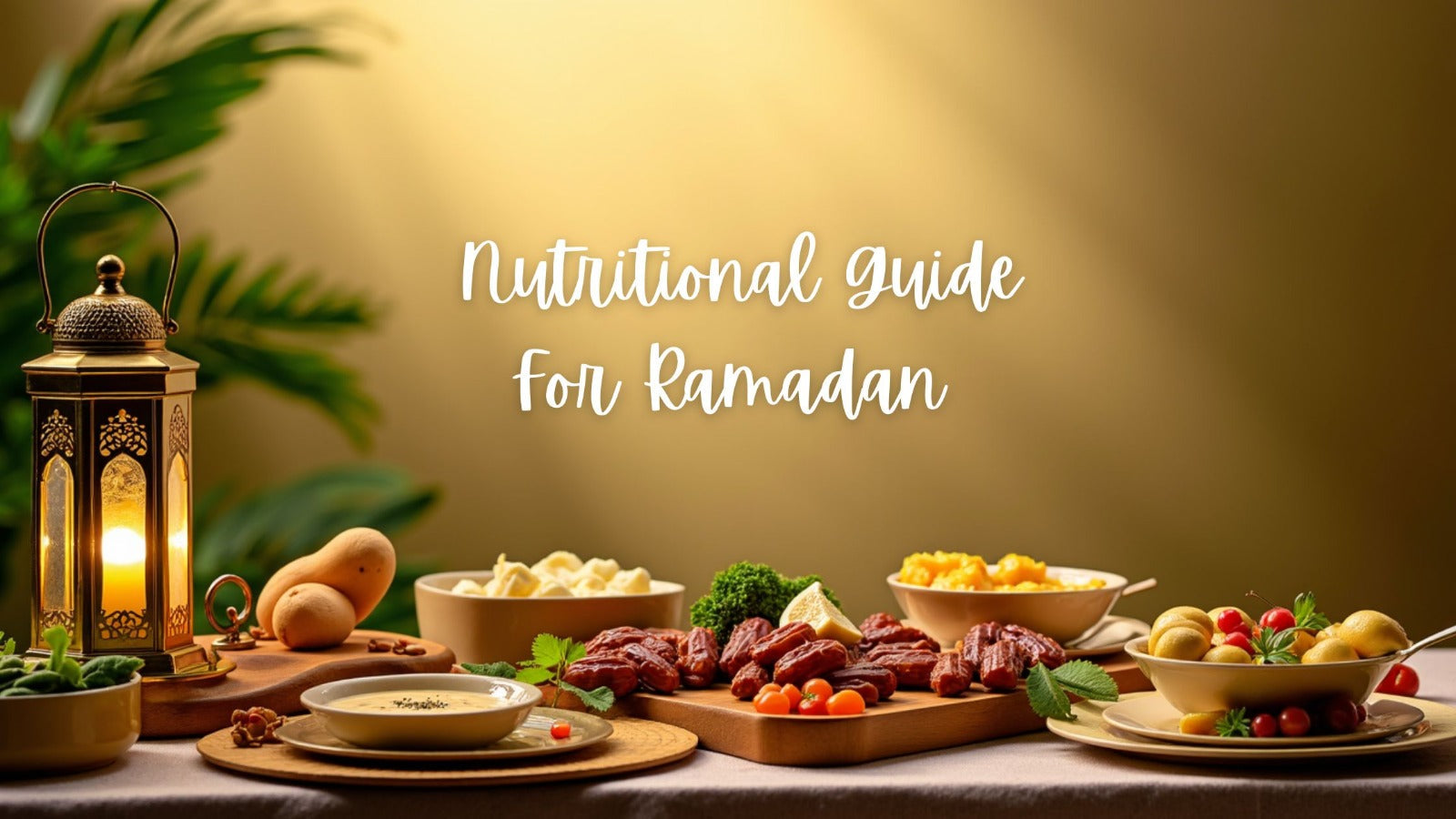Ramadan presents unique nutritional challenges as Muslims fast from dawn to sunset. Maintaining energy levels throughout long fasting hours requires strategic nutrition during pre-dawn meals (Suhoor) and evening meals (Iftar). This comprehensive guide will help you navigate the nutritional aspects of Ramadan to stay energized and healthy throughout the holy month.
Understanding Nutritional Needs During Ramadan
Fasting for extended periods puts special demands on your body. When you're limited to eating within specific timeframes, every meal becomes an opportunity to fuel your body with the nutrients it needs. Proper nourishment during Suhoor and Iftar helps prevent fatigue, dehydration, and weakness, allowing you to maintain your energy throughout the day.
Essential Vitamins and Supplements for Sustained Energy
Vitamin B Complex: Your Energy Foundation
Vitamin B complex plays a crucial role in converting food into energy and supporting your metabolism during fasting hours. For maximum benefit, include vitamin B-rich foods in your Suhoor meal. Whole grains, eggs, dairy products, bananas, and nuts are excellent sources that provide sustained energy throughout your fasting day.
Vitamin D: Support for Immunity and Mood
Especially important during Ramadan when your exposure to sunlight might be limited, vitamin D supports bone health, immune function, and helps regulate mood. Since it's fat-soluble, consuming vitamin D with your Iftar meal enhances absorption. Include fatty fish like salmon or tuna, egg yolks, and fortified dairy products in your evening meals.
Magnesium: The Relaxation Mineral
Magnesium helps with muscle function, prevents headaches, and improves sleep quality—all critical factors during Ramadan. Adding magnesium-rich foods to your Iftar meal or before bedtime promotes relaxation. Look to incorporate nuts (especially almonds and cashews), spinach, dark chocolate, and whole grains into your evening nutrition plan.
Iron: Combating Fatigue
Iron deficiency can lead to fatigue, making it particularly important during Ramadan, especially for women. Iron is best absorbed when consumed with vitamin C, making Iftar an ideal time to include iron-rich foods. Red meat, lentils, spinach, and dates provide excellent sources of this essential mineral.
Omega-3 Fatty Acids: Brain Function and Energy Stability
Omega-3 fatty acids support brain function, reduce inflammation, and help maintain stable energy levels throughout your fasting day. For optimal absorption, include these healthy fats with your Iftar meal. Fatty fish, chia seeds, flaxseeds, and walnuts are all rich sources of omega-3s.
Electrolytes: Hydration Heroes
Proper electrolyte balance prevents dehydration, muscle cramps, and fatigue during fasting hours. Consuming foods rich in sodium, potassium, and magnesium during Suhoor helps maintain hydration throughout the day. Bananas, coconut water, dates, avocados, and leafy greens all provide essential electrolytes to keep your body functioning optimally.
Strategic Meal Planning for Ramadan
Suhoor: The Foundation of Your Fasting Day
Your pre-dawn meal should focus on slow-releasing energy sources that will sustain you throughout the day:
Start with protein-rich foods like eggs, yogurt, or lean meats to provide lasting satiety. Combine these with complex carbohydrates such as oats, brown rice, or whole wheat bread that release energy slowly. Add healthy fats from sources like avocados, nuts, or olive oil to extend the feeling of fullness. Finally, hydrate thoroughly with water and include hydrating foods like cucumbers.
Iftar: Thoughtful Refueling
Breaking your fast requires careful consideration to replenish nutrients without overwhelming your digestive system:
Begin with dates and water to naturally restore blood sugar levels and provide quick energy. Move on to a balanced meal containing lean proteins, vegetables, and whole grains. Include vitamin and mineral-rich foods that support recovery from the day's fast.
Optimal Timing Guide for Supplements and Nutrients
Understanding when to consume specific nutrients maximizes their benefits during Ramadan:
-
Morning (Suhoor): Vitamin B complex, electrolytes, protein, complex carbohydrates, and hydrating foods
-
Evening (Iftar): Vitamin D, iron (with vitamin C-rich foods), omega-3 fatty acids, and magnesium
-
Before Sleep: Additional magnesium if needed for improved sleep quality
|
Supplement |
Best Time to Take |
Food Sources |
|
Vitamin B Complex |
Suhoor |
Whole grains, eggs, dairy, bananas |
|
Vitamin D |
Iftar |
Fatty fish, egg yolks, fortified dairy |
|
Magnesium |
Iftar or before bed |
Nuts, spinach, dark chocolate |
|
Iron |
Iftar (with vitamin C) |
Red meat, lentils, spinach, dates |
|
Omega-3 |
Iftar |
Fatty fish, chia seeds, walnuts |
|
Electrolytes |
Suhoor |
Bananas, coconut water, leafy greens |
Practical Tips for Ramadan Nutrition
Avoid caffeine during Suhoor as it can lead to dehydration during fasting hours. Instead of gulping large amounts of water at once, drink water gradually between Iftar and Suhoor to optimize hydration. Create balanced meals that include protein, complex carbohydrates, and healthy fats at both Suhoor and Iftar.
For those with specific health conditions, consult with a healthcare provider before making significant changes to your diet or supplement routine during Ramadan.
Conclusion
Ramadan offers a unique opportunity to reset your relationship with food while focusing on spiritual growth. With strategic nutrition planning, you can maintain energy levels, support overall health, and enhance your Ramadan experience. By incorporating the right nutrients at the optimal times, you'll find yourself better equipped to meet both the physical challenges and spiritual opportunities of this blessed month.
Remember that individual nutritional needs vary, so listen to your body and adjust your approach accordingly. Ramadan Kareem!

